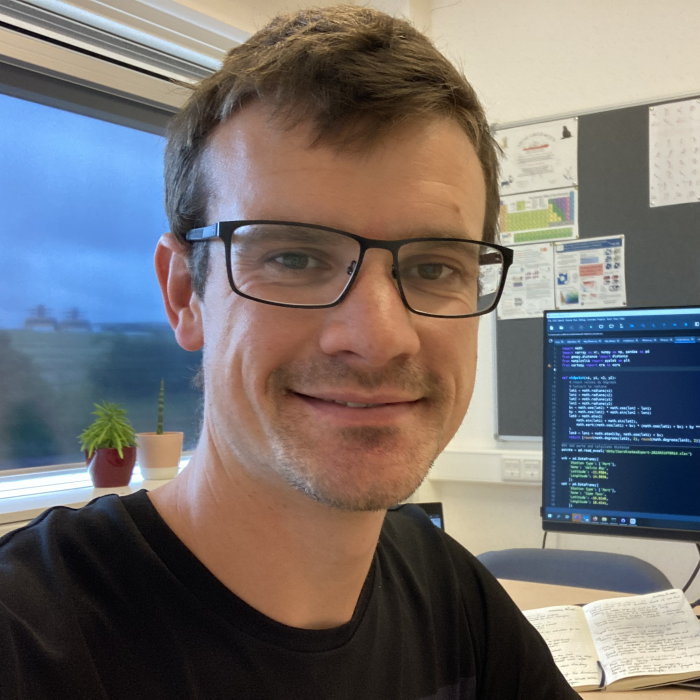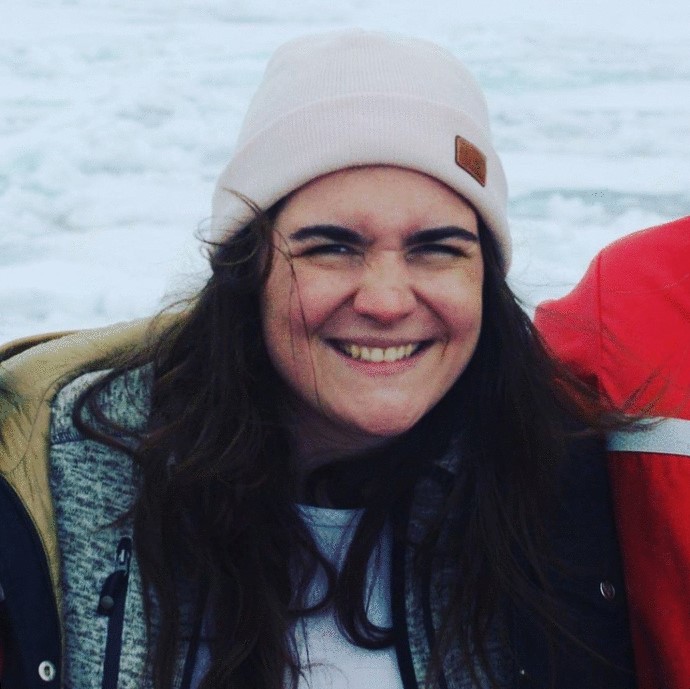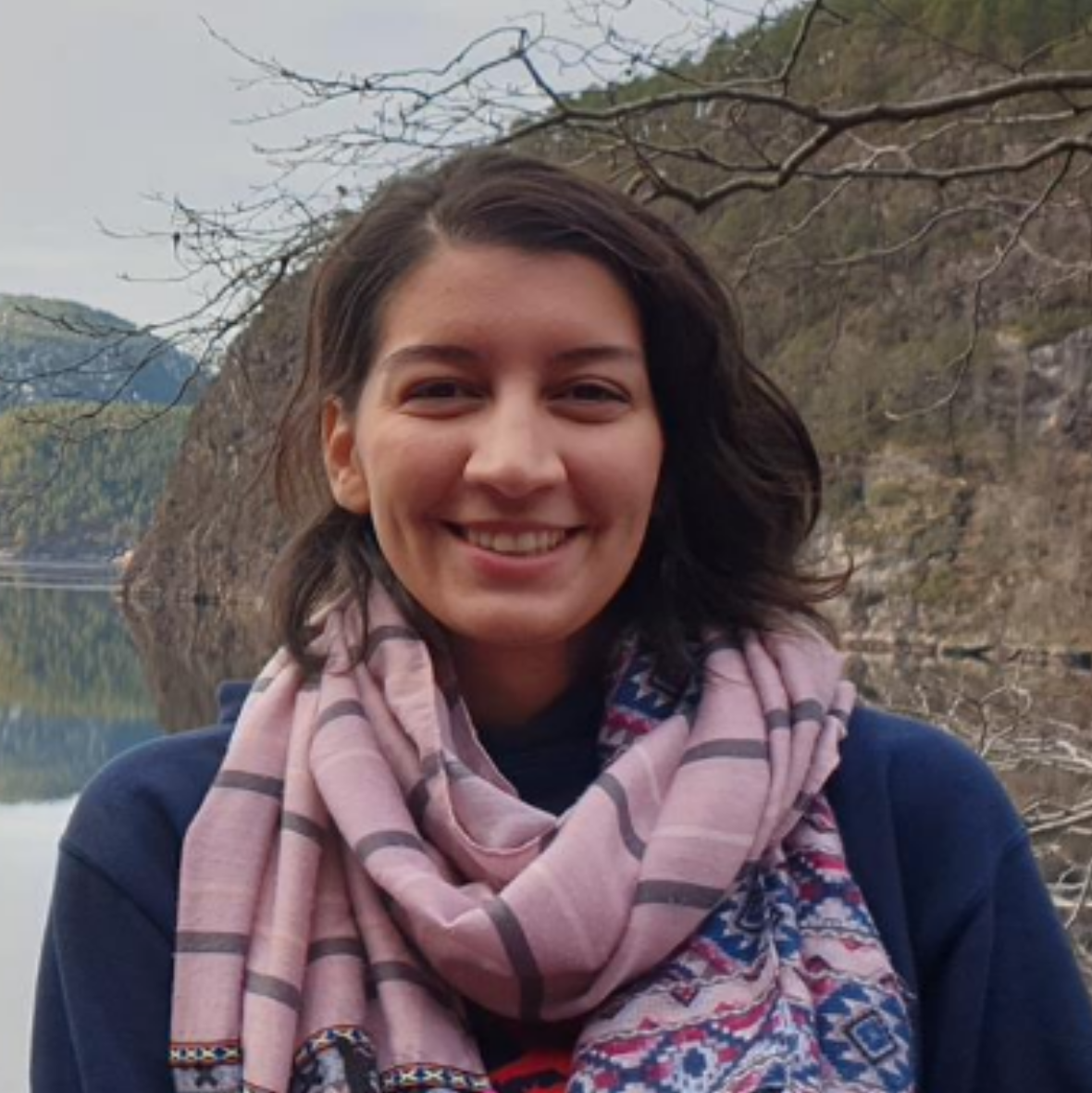Current group members

Dr Matthew P. Humphreys
Scientist at NIOZ Texel in the Department of Ocean Systems (OCS) since November 2019. Interested in the changing biogeochemistry of the modern ocean, with a focus on CO2. Conducts ocean-going, observation-based research alongside theoretical studies of the marine carbonate system and develops related scientific software. Previously based in the UK at the University of Cambridge (undergrad), Southampton (PhD and postdoc), and East Anglia (postdoc).
Google Scholar »NIOZ profile »Dr Margaux Brandon
Postdoc at NIOZ (Texel) on the NoSE project (North Sea-Atlantic exchange).
Google Scholar »NIOZ profile »
Louise Delaigue
PhD student at NIOZ Texel in the Department of Ocean Systems (OCS) since February 2020. My project explores blindspots in the marine carbon cycle with a focus on how the ocean responds to increasing anthropogenic CO2 emissions, especially in under-sampled regions such as the southern Indian and Pacific Oceans. I use scientific programming to investigate new measurements in combination with already existing datasets. MSc from McGill University (Canada).
Google Scholar »NIOZ profile »
Yasmina Ourradi
PhD student at NIOZ Texel in the Department of Ocean Systems (OCS) since August 2021. My research project aims at exploring and better understanding the human impact, especially infrastructure development such as offshore wind farms, on the carbonate system (mainly the pH) in the North Sea. The project is carried out through a combination of laboratory studies and high-resolution autonomous CO2 system sensors that will be deployed in the Sea. MSc from the Mediterranean Institute of Oceanography (France).
NIOZ profile »
Ben Cala
PhD student at NIOZ (Texel) and Utrecht University since February 2022. After jumping from organometallic and computational chemistry during my BSc at the University of Tübingen (Germany) to atmospheric chemistry at Cambridge University (UK), I now ended up in chemical oceanography. I am interested in the dissolution of calcium carbonate in the water column. Specifically, my project aims to identify drivers of dissolution apart from the saturation state, through field and lab experiments as well as modelling approaches.
Google Scholar »NIOZ profile »
Marina Anita Ádler
PhD student at NIOZ Texel in the Department of Ocean Systems (OCS) since March 2023. I am involved in the NoSE Project, an interdisciplinary consortium aiming to understand carbon and nutrient cycling within the North Sea and the North Atlantic Ocean. My project deals with the inorganic carbonate, inorganic nutrient, and dissolved trace metal chemistry in the water column. Our study area is the Norwegian Trench, where three of our expeditions take place on board RV Pelagia. I obtained my Marine Sciences master's degree at Utrecht University (Netherlands) and my Biology/Biochemistry bachelor's degree at Eotvos Lorand University (ELTE, Hungary).
NIOZ profile »Nynke Massop
Masters student from Wageningen University & Research (WUR) studying organic alkalinity in the Wadden Sea.
Open positions
Masters projects
If you are looking for a Masters-level research project in the Netherlands related to our work, please get in touch!
Alumni
NIOZ Texel
Masters research projects for students from various Dutch universities (VU, UU, UT, WUR) (co-)supervised at the NIOZ since 2021:
- Anthropogenic carbon in the Atlantic Ocean at 40 °S from 1972 to 2014.
- pH dynamics in the North Sea.
- Computation of global calcium carbonate dissolution from diapycnal alkalinity transport.
- Predicting the marine carbonate system in the surface of the Southern Bight of the North Sea: based on extreme gradient boosting models.
- The carbonate system on the long-term in the Dutch coastal zone: ocean acidification in reverse?
- Effects of seawater composition on the dissociation of carbonic acid.
- Seasonal and inter-annual variability of pH and relevant biogeochemical cycles along the Dutch coastal zone.
- Ocean acidification and air-sea CO2 exchange in the Dutch North Sea.
University of Southampton
Masters research projects supervised by Matthew Humphreys at the University of Southampton from 2011 to 2017:
- Accumulation of anthropogenic carbon and acidification of Northeast Atlantic water masses.
- Variability of marine carbonate chemistry in the Benguela upwelling region, South Atlantic.
- Controls on the equatorial Pacific as a source of CO2 to the atmosphere using data from the Surface Ocean CO2 Atlas (SOCAT).
- The stable isotope composition of dissolved inorganic carbon and anthropogenic CO2 uptake in the subpolar North Atlantic during summer 2014.
- Multi-decadal changes in interior carbonate chemistry in the South Atlantic.
- The northwest European continental shelf in the Surface Ocean CO2 Atlas (SOCAT).
- Surface carbonate chemistry in the Chukchi Sea, Arctic Ocean.
- Latitudinal gradients in surface ocean CO2 chemistry across the subtropical North Atlantic Ocean.
- Marine carbonate chemistry and nutrients on the Extended Ellett Line transect, Northeast Atlantic Ocean.